Above: video of the AICamp meetup in London on 10 December 2024. Harmony starts at 40:00 - the first talk is by Connor Leahy of Conjecture
Fast Data Science presented the open source AI tool Harmony at recent GenAI and LLMs night at Google London on 10th December 2024 organised by AI Camp at Google Cloud Startup Hub.
AI Camp and Google co-hosted two deep dive tech talks on AI, GenAI, LLMs and machine learning, food/drink, networking with speakers and fellow developers.
The first talk of the evening was by Connor Leahy of Conjecture, titled “Cognitive Software and the (near) Future of AI”.
The second talk was given by Thomas Wood and Bettina Moltrecht, who presented our work on Harmony (harmonydata.ac.uk), a free online tool that uses generative AI and LLMs to help researchers discover datasets and compare items in questionnaires such as GAD-7 (used to measure anxiety), even when they are written in different languages. Harmony is open source under MIT License and is written in Python, and uses HuggingFace Sentence Transformers to find similarities between questionnaires. Harmony is funded by the Economic and Social Research Council and was previously funded by Wellcome.
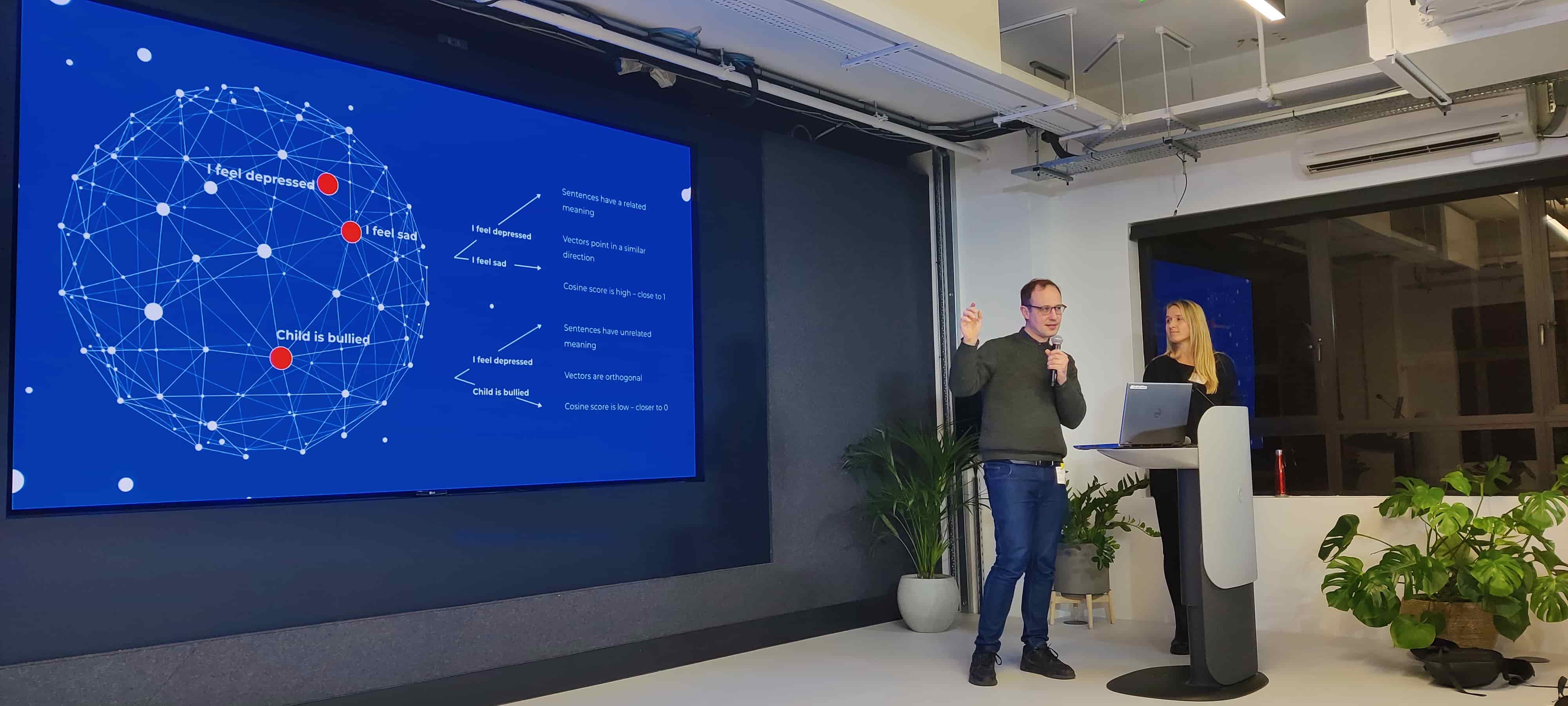
Above: Thomas Wood and Bettina Moltrecht explain how sentence embeddings are used to map psychological questionnaire items to vectors of unit length on the surface of a hypersphere.
| Topic | Harmony, Open source AI tool for psychology research |
|---|---|
| Speakers | Thomas Wood (Fast Data Science), Dr Bettina Moltrecht (UCL) |
| Date | 10th December 2024 |
| Time | 6pm UK time |
| Location | Google Cloud Startup Hub, 4-5 Bonhill St., London |
| Abstract | In this talk, Thomas Wood and Bettina Moltrecht discuss using generative AI and LLMs to help researchers discover datasets and compare items in questionnaires such as GAD-7 (used to measure anxiety), even when they are written in different languages. |
Missed the talk?
Click to read more about AI in research at Fast Data Science.
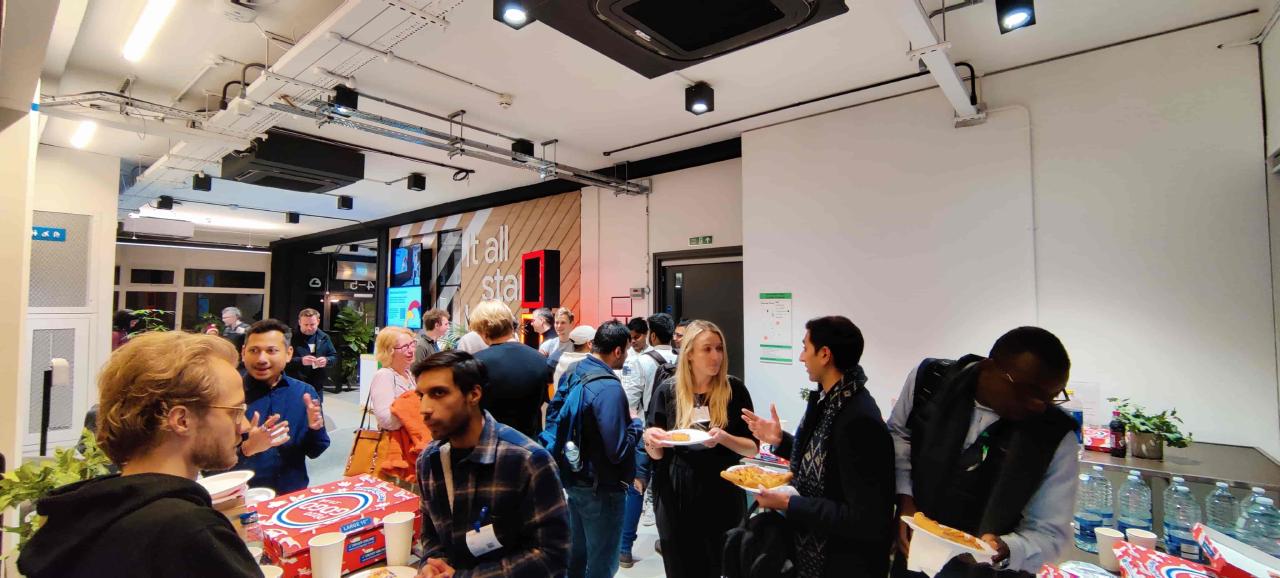
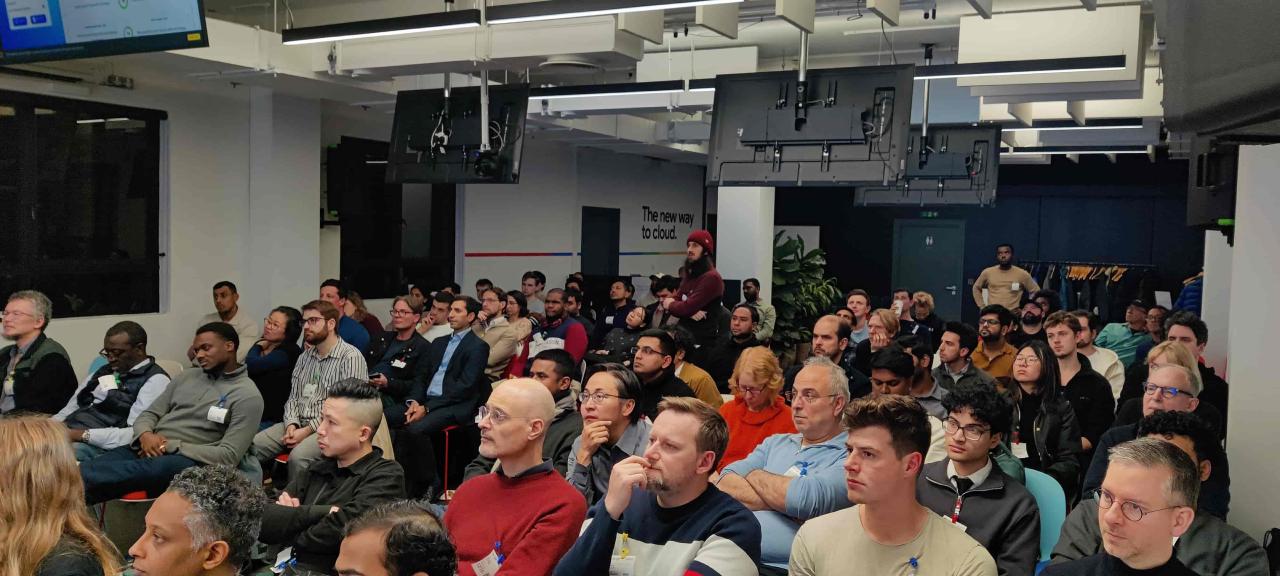
At the end of the evening, to wrap up the AICamp events of 2024, we took a group selfie! The organisers at AICamp later reported that they received good feedback from the talk’s attendees on the health theme: a lot found it to be on the right level, very much applied and a nice welcome to just having purely software focused talks.
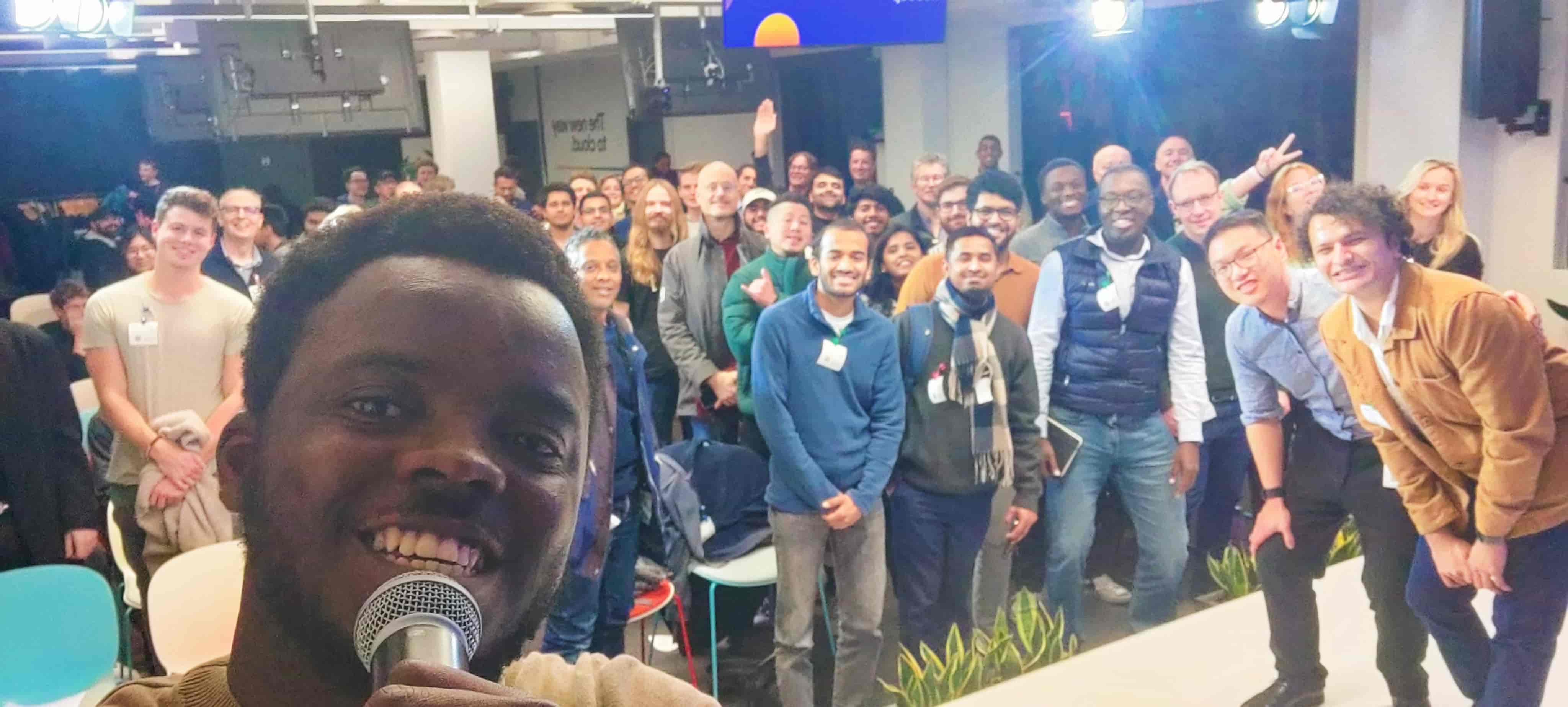
Unleash the potential of your NLP projects with the right talent. Post your job with us and attract candidates who are as passionate about natural language processing.
Hire NLP Experts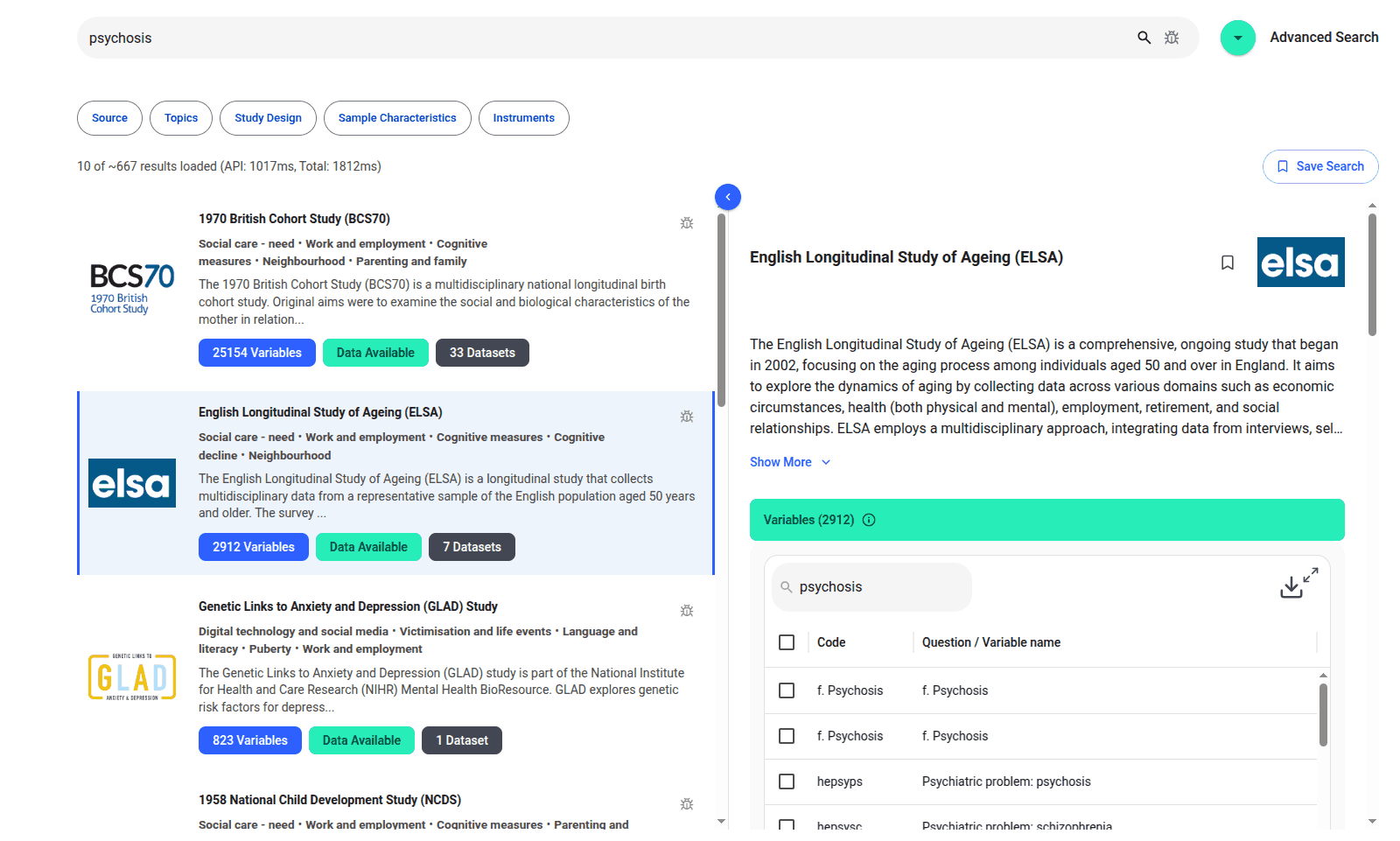
We are excited to introduce the new Harmony Meta platform, which we have developed over the past year. Harmony Meta connects many of the existing study catalogues and registers.

Guest post by Jay Dugad Artificial intelligence has become one of the most talked-about forces shaping modern healthcare. Machines detecting disease, systems predicting patient deterioration, and algorithms recommending personalised treatments all once sounded like science fiction but now sit inside hospitals, research labs, and GP practices across the world.
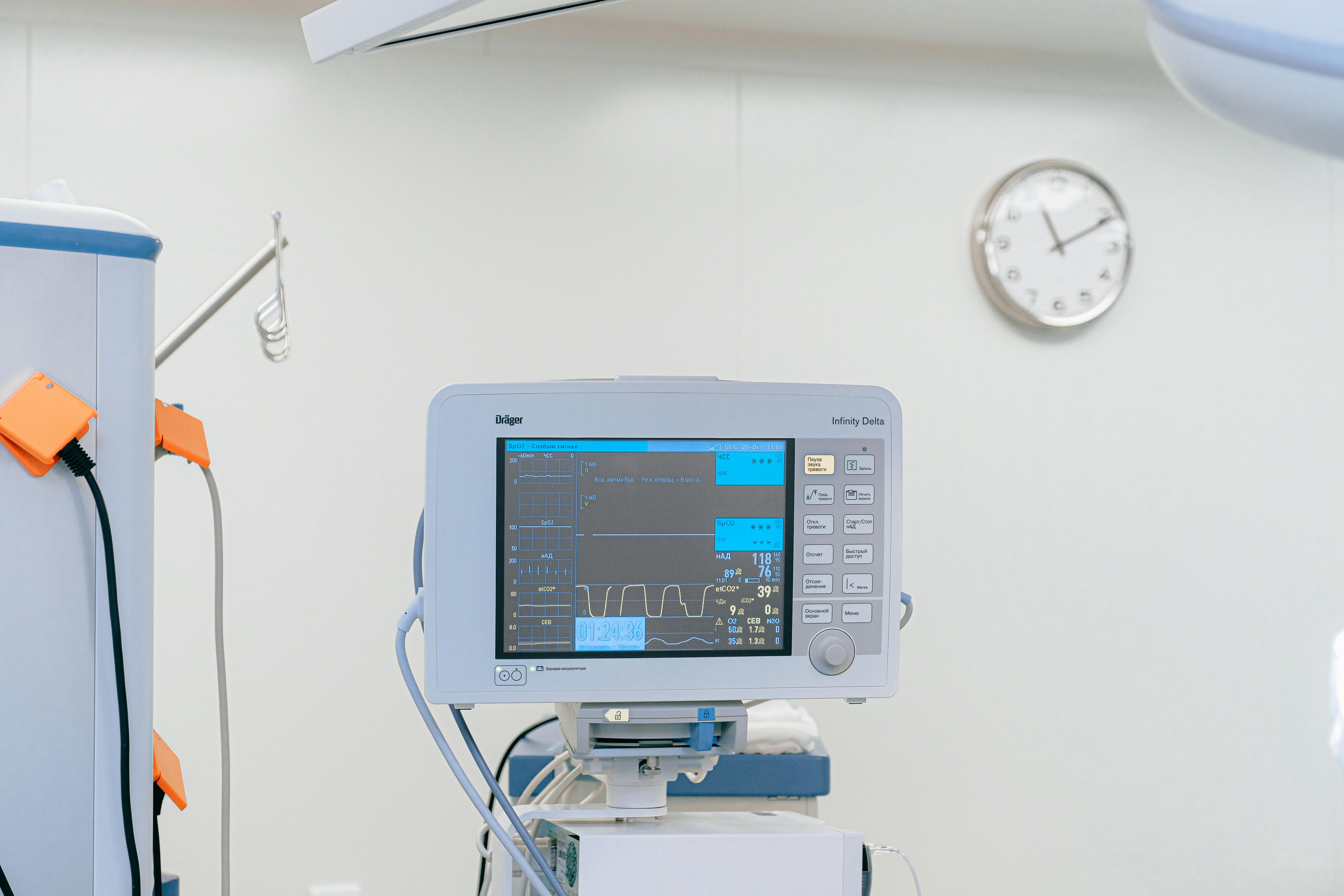
If you are developing an application that needs to interpret free-text medical notes, you might be interested in getting the best possible performance by using OpenAI, Gemini, Claude, or another large language model. But to do that, you would need to send sensitive data, such as personal healthcare data, into the third party LLM. Is this allowed?
What we can do for you